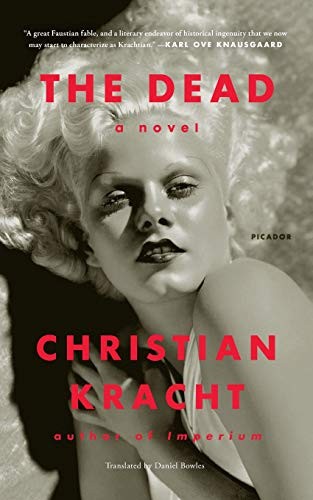Brossura, 208 pagine
lingua English
Pubblicato il 16 Luglio 2019 da Picador.

Brossura, 208 pagine
lingua English
Pubblicato il 16 Luglio 2019 da Picador.
“A great Faustian fable, and a literary endeavor of historical ingenuity that we now may start to characterize as Krachtian.” —Karl Ove Knausgaard
The follow-up to Christian Kracht's acclaimed novel Imperium (a Publishers Weekly Best Book of the Year), The Dead mines the feverish early years of the Nazis' rise to power for a Gothic tale of global conspiracy, personal loss, and historical entanglements large and small.
In Berlin, Germany, in the early 1930s, the acclaimed Swiss film director Emil Nägeli receives the assignment of a lifetime: travel to Japan and make a film to establish the dominance of Adolf Hitler’s Nazi empire once and for all. But his handlers are unaware that Nägeli has colluded with the Jewish film critics to pursue an alternative objective—to create a monumental, modernist, allegorical spectacle to warn the world of the horror to come.
Meanwhile, in Japan, the film minister Masahiko Amakasu intends …
“A great Faustian fable, and a literary endeavor of historical ingenuity that we now may start to characterize as Krachtian.” —Karl Ove Knausgaard
The follow-up to Christian Kracht's acclaimed novel Imperium (a Publishers Weekly Best Book of the Year), The Dead mines the feverish early years of the Nazis' rise to power for a Gothic tale of global conspiracy, personal loss, and historical entanglements large and small.
In Berlin, Germany, in the early 1930s, the acclaimed Swiss film director Emil Nägeli receives the assignment of a lifetime: travel to Japan and make a film to establish the dominance of Adolf Hitler’s Nazi empire once and for all. But his handlers are unaware that Nägeli has colluded with the Jewish film critics to pursue an alternative objective—to create a monumental, modernist, allegorical spectacle to warn the world of the horror to come.
Meanwhile, in Japan, the film minister Masahiko Amakasu intends to counter Hollywood’s growing influence and usher in a new golden age of Japanese cinema by exploiting his Swiss visitor. The arrival of Nägeli’s film-star fiancée and a strangely thuggish, pistol-packing Charlie Chaplin—as well as the first stirrings of the winds of war—soon complicates both Amakasu’s and Nägeli’s plans, forcing them to face their demons . . . and their doom.